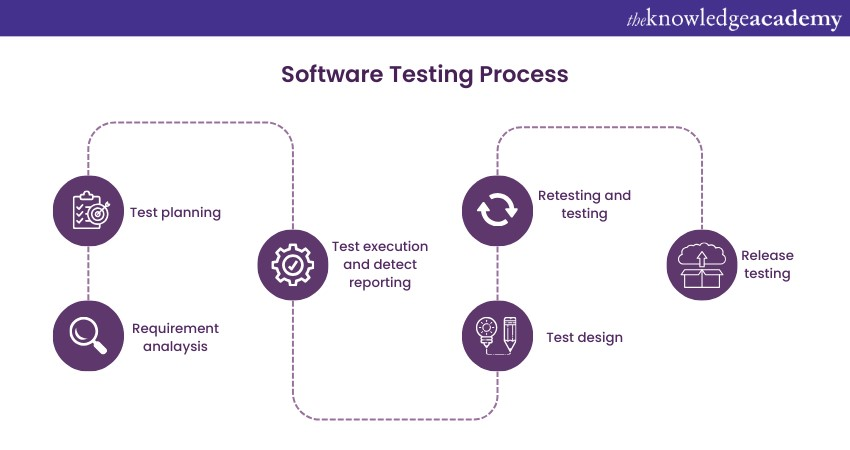We may not have the course you’re looking for. If you enquire or give us a call on + 1-866 272 8822 and speak to our training experts, we may still be able to help with your training requirements.
We ensure quality, budget-alignment, and timely delivery by our expert instructors.

Software Testing is vital for the smooth functioning of software across the world, which the world increasingly depends on. It allows Software to work without flaws, thanks to different test cases implemented by Software Developers. These test cases rely on Test Analysis over time, allowing the test to effectively root out any potential bugs or errors. What is Test Analysis in Software Testing, you ask? That is exactly what this blog will talk about.
According to Statista, IT spending on software reached a total sum of 629.53 billion GBP, demonstrating the growth of this field. With the rise of the software market, there comes a rise in the need for Software Testers capable of analysing test cases and implementing them. If you wish to learn more about What is Test Analysis in Software Testing, you’ve come to the right blog. Test Analysis is the process of inspecting the test artefacts to construct test conditions or test cases.
Table of contents
1) What is Test Analysis?
2) Factors determining Test Analysis
a) Software Requirement Specification (SRS)
b) Business Requirement Specification (BRS)
c) Functional Design Documents (FDS)
3) Importance of Test Analysis in Software Development
4) Conclusion
What is Test Analysis?
Test Analysis is a process of establishing test cases by determining what needs to be tested and specifying the methods to do so. Software Testers and developers establish test conditions which become a standard for checking the state of software throughout a Software Development Life Cycle (SDLC). Since this process establishes the objectives of a test, it is also referred to as the Testing Foundation.
Software Testing is often linear in nature, where a created product is run through certain conditions to test how useful it is and check its proper functioning. However, Software Testing is divided into different categories and phases, Such as Unit Testing, Integration Testing, and Regression Testing are some common examples. Test Analysis helps Developers and Testers select the right test for discovering the possible errors in a product.
Factors determining Test Analysis
Software Testers and Developers go through a set of factors, having gathered information and requirements of the product while selecting the potential test cases. Some of these factors that determine Test Analysis are as follows:

Software Requirement Specification (SRS)
SRS helps in establishing how software should be built and what functionalities it should aim for during the development process. As a result, it is mandatory to go through the document in order to have an idea of where the Software might be failing to meet a certain standard. Analysing this document helps the Testers in creating a Test Basis, which eventually becomes testing conditions.
Wish to learn how to be a Test Analyst? Try our ISTQB Advanced Level Test Analyst Course!
Business Requirement Specification (BRS)
BRS documentation has clearly written requirements that the client and users expect from the software. As a result, it is important for the Software Testers and Developers to check if the state of the software meets the required requirements. In case they find any discrepancies, they are able to plan out the test cases accordingly to root out the cause of the.
Functional Design Documents (FDS)
FDS documents have a clear explanation of how a control system within a software is supposed to behave. It plays a vital part in the creation of flow charts, blueprints and Programmable Logic Controller (PLC). This document is important for Software Testers and Engineers alike, as the functional specifications within the document act as a guide for both roles regarding the software.
Master the basics of Software Testing with our ISTQB Software Testing Foundation Course!
Importance of Test Analysis in Software Development
Test Analysis is a vital part of the Software Testing process due to the benefits it brings, making it important for Software Development. Test Analysis is important for controlling the test output, making sure each member of the development team is working to attain the same goal.
Test Analysis allows the Developers and Testers to make sure that every test scenario is created with the goal of determining specific output from the User Interface (UI) and the overall functioning of the software. Additionally, it allows the testers to stimulate the circumstances that can lead to problems in future, making sure a wide array of potential issues is resolved as early as possible.
Interested in creating resilient software? Try our Software Testing Courses & Training!
Conclusion
As we conclude this blog, we hope you were able to gain a firm understanding of What is Test Analysis in Software Testing. It is a vital part of SDLC to make sure the tests run on software are functional and succeed at rooting out problems before they become a major crisis.
Interested in becoming a Software Tester? Try our ISTQB Advanced Level Test Manager Course!
Frequently Asked Questions
Upcoming Business Analysis Resources Batches & Dates
Date
 ISTQB Software Testing Foundation
ISTQB Software Testing Foundation
Mon 10th Mar 2025
Mon 12th May 2025
Mon 14th Jul 2025
Mon 15th Sep 2025
Mon 10th Nov 2025
Mon 15th Dec 2025







 Top Rated Course
Top Rated Course



 If you wish to make any changes to your course, please
If you wish to make any changes to your course, please


